
Do Lactation Supplements Work?
Breastfeeding is an incredible, wholesome journey filled with moments of joy and connection. But it can also be a challenging time for new mothers. One of the biggest worries many moms face is whether they’re making enough milk for their baby. And, if not, how can they increase that milk supply naturally? This concern can cause significant stress, keeping moms up at night wondering if their baby is getting enough to eat. At this point, lactation supplements may come into play. They’re often seen as the breastfeeding superheroes, promising to boost milk supply and ease your worries. But do they actually deliver on that promise? Can they genuinely make a difference in how much milk you produce? The idea is simple: ingesting these products that contain ingredients to promote milk production will increase breast milk supply. Many moms swear by them! This blog will uncover the variety of lactation supplements to help you determine if they can make a difference in your breastfeeding journey.
Understanding the Need for Breastfeeding Supplements to Increase Milk Supply
Breastfeeding doesn’t always go as smoothly as planned for many mothers, especially first-time moms. It’s not always the mom’s body that causes this issue. Stress, diet, or even your baby’s latching can affect milk production. When you’re not producing enough breast milk, it can be frustrating and worrisome. Breastfeeding supplements are designed to boost milk production, offering a potential solution to low milk supply. But why do some mothers struggle with milk production in the first place? Several factors can contribute to a low milk supply.
Stress and Fatigue
Being a new mom is exhausting, whether it’s your first child or your third. Stress and lack of sleep can interfere with your body’s ability to produce milk. When you’re stressed, your body releases cortisol, a hormone that reduces the production of prolactin and oxytocin, two hormones essential for milk production and letdown. Prolactin stimulates milk production, while oxytocin triggers the body to release milk from the breasts. Fatigue further disrupts your body’s ability to maintain a steady milk supply. When you’re exhausted, your hormonal balance can become off-kilter, just as it does with stress. Your body then produces higher cortisol levels. High cortisol levels can suppress these vital hormones, making it harder for your body to produce and release breast milk. Exhaustion also means drained energy levels, leaving your body with fewer resources for consistent milk production.
Another aspect of how stress and fatigue affect your milk supply is dehydration. Remaining properly hydrated is essential during breastfeeding. It’s also helpful in keeping your energy up. As a rule, drinking more water is important for overall health (as is a nutritious diet), but it can also help alleviate certain breastfeeding difficulties.
Moringa has an advantage over other lactation supplements: it features a full array of vitamins, minerals, phytonutrients, and antioxidants that can fill in nutritional gaps, combat stress, and help keep your energy levels steady.
What can you do: Try to prioritize rest whenever possible, even if it means asking for help with the baby or household tasks. Take a nap when the baby naps. Incorporate stress-relief techniques like deep breathing and gentle exercise. If you find stress overwhelming, consider talking to a counselor or joining a support group for new moms.
Poor Latch or Suckling
When your baby doesn’t latch as it should, your breasts aren’t emptied effectively during feeding. This lack of emptying signals your body that less milk is needed, causing a decrease in milk production. What can you do: Contact a lactation consultant who can help improve your baby’s latch. Sometimes, just a slight adjustment can make a difference. Practice different breastfeeding positions as well. Find one that works best for you and your baby.
Here’s another helpful tip. Many breastfeeding moms find that their nipples may become sore or cracked. Using creams or oils to soothe them is recommended, but if that oil or cream is too greasy, it may make it difficult for baby to latch on. A fast-absorbing formula, like that of healing Moringa seed oil, both quickly heals and soothes, but it doesn’t leave an oily residue that might get in baby’s way of forming a strong latch and feeding successfully.
Infrequent Nursing or Pumping
Breast milk production is a supply-and-demand system. The less frequently you nurse or pump, the less milk your body will produce. When milk stays in the breast for too long without being removed, it signals your body to slow down or stop milk production.
What can you do: Aim to nurse or pump every 2-3 hours, especially in the early weeks, to establish and maintain your milk supply. If your baby isn’t hungry, try pumping to keep your milk flowing. Remember, the more you empty your breasts, the more milk your body will produce.
Health Conditions
Conditions like thyroid imbalances or hormonal disorders can also reduce milk supply. For example, the thyroid gland regulates many of your body’s essential functions. An imbalance here can disrupt the delicate balance of prolactin and oxytocin.
What you can do: If you suspect a health condition is affecting your milk supply, talk to your healthcare provider. They can run tests to diagnose any underlying issues and work with you on a treatment plan that supports your health and breastfeeding goals.
Medications
Some prescription medications can interfere with milk production. Certain medications, like decongestants and hormonal birth control methods, can reduce prolactin levels or affect the body’s response to it. This effect can reduce milk production or make it harder for your body to respond to the demand for more milk.
What can you do: Review your medications with your healthcare provider. They may be able to suggest alternatives that are more breastfeeding-friendly or adjust your dosage to minimize any impact on your milk supply. Always consult with your provider before stopping or changing any medications. Understanding these underlying causes allows you to address the root of the problem rather than just the symptoms.
Types of Lactation Supplements
Various lactation supplements are available, each with unique approaches to increasing breast milk production. These supplements typically fall into the following categories:
- Herbal Lactation Supplements: Made from plant-based ingredients known as galactagogues, herbal supplements aim to promote natural lactation. Some examples include fenugreek, moringa, and blessed thistle. Due to their natural origins, herbal supplements are popular and are often found in lactation powders, capsules, and teas.
- Pharmaceutical Galactagogues: Prescriptions are sometimes used to stimulate milk production. They’re recommended as a last resort when other methods haven’t worked. As with all prescriptions, only take these medications under the guidance of a healthcare provider due to potential side effects.
- Dietary Supplements: These supplements include lactation cookies, bars, and shakes, combining many galactagogues with other nutrients to support milk production. You can also add lactation powders, like Go-Lacta Lactation Moringa Superfood powder, to your shakes or smoothies for an extra boost. They’re a tasty, convenient way to incorporate lactation-boosting ingredients into your diet.
- Lactation Teas: These herbal teas are a soothing option for nursing mothers. They usually contain a mix of galactagogues like fennel, anise, moringa, and fenugreek. A high-quality lactation tea should have a high concentration of these active ingredients to stimulate milk production.
Each type of lactation supplement works differently, so it may take some experimentation to find what works best for you. Always start with one supplement and track any changes in how you feel, as well as your milk supply.
Common Ingredients in Lactation Supplements
The effectiveness of breastfeeding supplements is highly dependent on the active ingredients they contain. Here’s a closer look at some of the most common ingredients in popular lactation supplements and how they may help boost your milk supply.
Fenugreek
One of the most well-known herbal galactagogues is fenugreek. This herb is often the go-to for mothers looking to boost their breast milk production. It has a distinctive maple syrup scent, so it’s frequently found in lactation teas. Fenugreek is believed to work by stimulating sweat production. Since mammary glands are modified sweat glands, using a supplement with fenugreek should increase breast milk supply. However, compared to other herbal lactation supplements, some mothers notice that the distinct taste of fenugreek may flavor their milk. Some infants don’t mind it, but others may resist feeding if they don’t enjoy the taste.
Moringa Leaves
The moringa tree is a plant native to India and Asia, but thrives in the Philippines. Having been successfully used in traditional medicine for centuries, it’s been gaining more popularity as a powerful lactation supplement.
Blessed Thistle
Blessed thistle is another herb often paired with fenugreek. It’s believed to work by stimulating the production of prolactin, the hormone responsible for milk production. Blessed thistle has been used to treat various ailments for centuries. Its role in promoting lactation is well-supported by anecdotal evidence. Nursing mothers looking to boost their milk supply may find that adding blessed thistle to their regimen helps maintain steady breast milk production.
Milk Thistle
Milk thistle is another common ingredient in lactation supplements. It's believed to aid in milk production by supporting the liver, which helps balance hormones crucial for lactation. Milk thistle is generally safe and well-tolerated, making it a popular choice for nursing mothers.
Fennel
Due to its sweet, licorice-like flavor, fennel is commonly used in lactation teas. Outside of its flavor, this herb is known for its potential to increase milk flow and promote digestion. Fennel contains phytoestrogens, which mimic the hormone estrogen and may enhance milk production. It’s a popular choice in herbal remedies, and many nursing mothers find it’s a gentle, effective way to support lactation.
Brewer's Yeast
Brewer’s yeast is a fungus rich in B vitamins, iron, protein, and chromium. It’s commonly used in lactation cookies and other dietary supplements to boost milk supply. Brewer’s yeast is believed to help with energy levels and mood. What new mom doesn't need help in these areas? By improving overall well-being, brewer’s yeast can indirectly support breast milk production and help mothers maintain a consistent supply.
Goat's Rue
Though it’s a lesser-known galactagogue, goat’s rue has been used in Europe for centuries to stimulate milk production. It’s believed to help develop breast tissue, which is essential for milk production because the alveoli, milk-producing glands, are located within the breast tissue. The more developed the breast tissue is, the greater the potential capacity for milk production. It’s beneficial for mothers struggling with lower milk supply who didn’t experience significant breast changes during pregnancy. Each ingredient has a long history of use in herbal medicine and supplements, with many mothers finding them helpful in boosting milk production. Knowing how they work and why they’ll help your milk production will enable you to make a more informed decision.
How Do Lactation Supplements Increase Breast Milk Production?
Most lactation supplements aim to increase the production of prolactin. This hormone plays a central role in milk production. When prolactin levels rise, your body is signaled to produce more milk. Here’s how different types of supplements contribute to increasing breast milk production:
- Herbal Supplements: These work by stimulating the mammary glands. Ingredients like fenugreek, moringa, and blessed thistle contain compounds that mimic the hormones that encourage breast milk production. Most of these can be found in capsules, powders, and teas.
- Pharmaceutical Galactagogues: Prescription medications such as domperidone work by blocking dopamine receptors, which in turn increase prolactin levels. While effective, these are generally reserved for situations when other methods haven’t worked.
- Dietary Supplements: Products like lactation cookies, bars, and shakes combine many galactagogues with extra nutrients to support the mothers' health. These supplements often include oats, flaxseed, and brewer’s yeast, believed (through anecdotal evidence) to promote lactation.
- Lactation Teas: Teas offer a gentle, soothing approach to boosting milk production. Staying hydrated is crucial for breastfeeding, and sipping on a warm lactation tea not only helps you maintain fluid levels but also delivers beneficial ingredients like moringa, fennel, and anise.
- (Go-Lacta’s organic Moringa tea can be enjoyed either warm or chilled. Each tea bag makes 32 ounces and is caffeine-free. Sip it throughout the day to stay energized and hydrated.)
- These herbs work together to promote milk flow and can be a comforting, practical part of a comprehensive lactation support plan. Incorporating lactation tea into your routine is an easy way to boost hydration while enjoying the added benefits of these milk-enhancing ingredients.
Many of the lactation supplements we’ve mentioned have been successfully used for years. Some work better than others for a nursing mom; it may require a bit of trial and error to discover what fits best with your lifestyle. As a leading distributor of organic Moringa to increase milk production, Go-Lacta offers these notes.
- As with any kind of supplement, it’s wise to check with your doctor, lactation consultant, or authorized health provider first before taking them. They’re all generally considered safe, but some may interfere with certain medications for blood pressure, thyroid, or other conditions. Also, combining different lactation supplements together may reduce their effectiveness or interfere with each other. Try them one at a time to see which you prefer, monitoring your breast milk production, as well as how baby tolerates the supplement, and how your body feels overall.
- The time it takes to see results varies. In the case of Moringa, for example, expect to see an increase in your breast milk production anywhere from a few days to a couple of weeks.
- Some women begin taking a lactation supplement shortly before they give birth. Or, they wait for a few days post-partum to add them to their routine.
- Consistency is essential in getting the most from supplements. Find the form – capsule, tea, or powder - that makes it easiest to incorporate into your daily life.
- It’s always best to begin with the lowest dose of a lactation supplement to see how your system will tolerate it. For example, Moringa is high in fiber; start slowly to see how you do, and build from there.
Boosting Breast Milk Production With Supplements
Your breastfeeding journey is as unique as you are and filled with joys and challenges. A lactation consultant will tell you that maintaining a steady milk supply can be one of the most significant hurdles. Lactation supplements are a potential solution for many. Remember, these supplements work best when combined with other healthy practices, like regular nursing or pumping, stress management, and proper nutrition.
After you start taking lactation supplements, how will you know they’re working? When it comes to Go-Lacta’s breastmilk supplements, you can expect to see an increase in milk supply anywhere from a day or two to a couple of weeks. A few ways to tell that your baby is getting enough milk are if you notice infant weight gain, as well as more dirty diapers.
Whether you’re dealing with a low milk supply or just want to ensure you produce enough milk for your baby, Go-Lacta is here to help. Our organic lactation supplements, made with natural ingredients, are designed to boost milk production and support your overall health. We grow and harvest our certified organic Moringa on our sustainable farm in the Philippines. It’s processed and sealed onsite to ensure that it’s at its peak of freshness and potency. We use cellulose for our capsules, making Go-Lacta Moringa capsules perfect for vegan or vegetarian moms.
We believe every mother deserves support on her breastfeeding journey. Our products are designed with care, using high-quality ingredients such as moringa to help increase lactation, enhance your milk supply with its “superfood” nutrition, and provide the best nourishment for your baby. Don’t let a low milk supply hold you back; take control with Go-Lacta and improve your milk supply while improving your overall diet and energy levels.

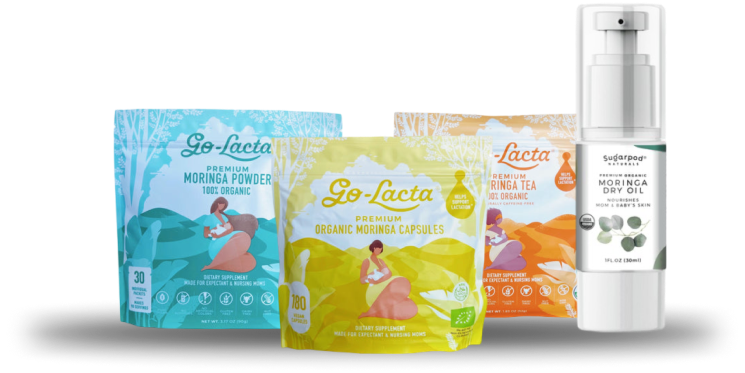
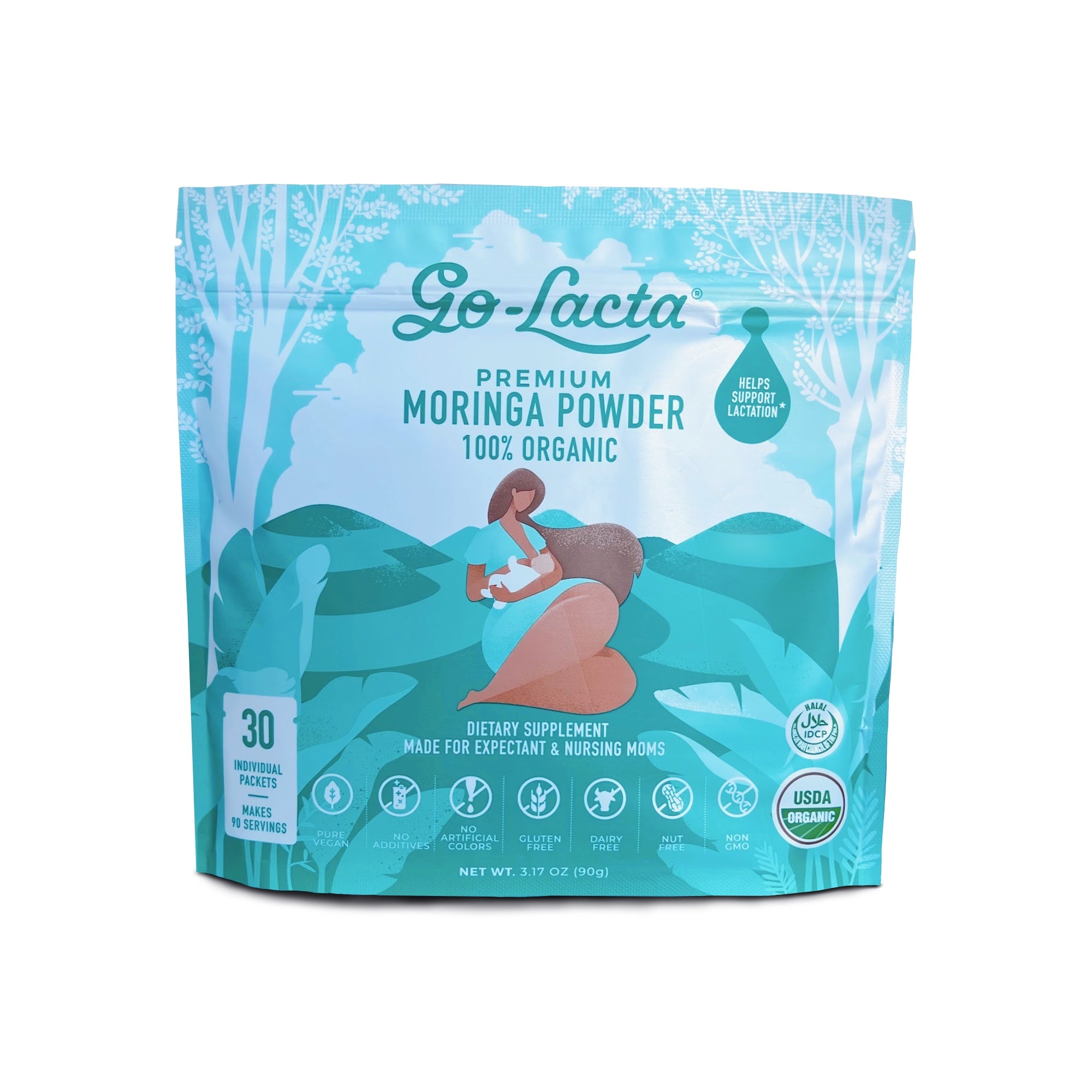
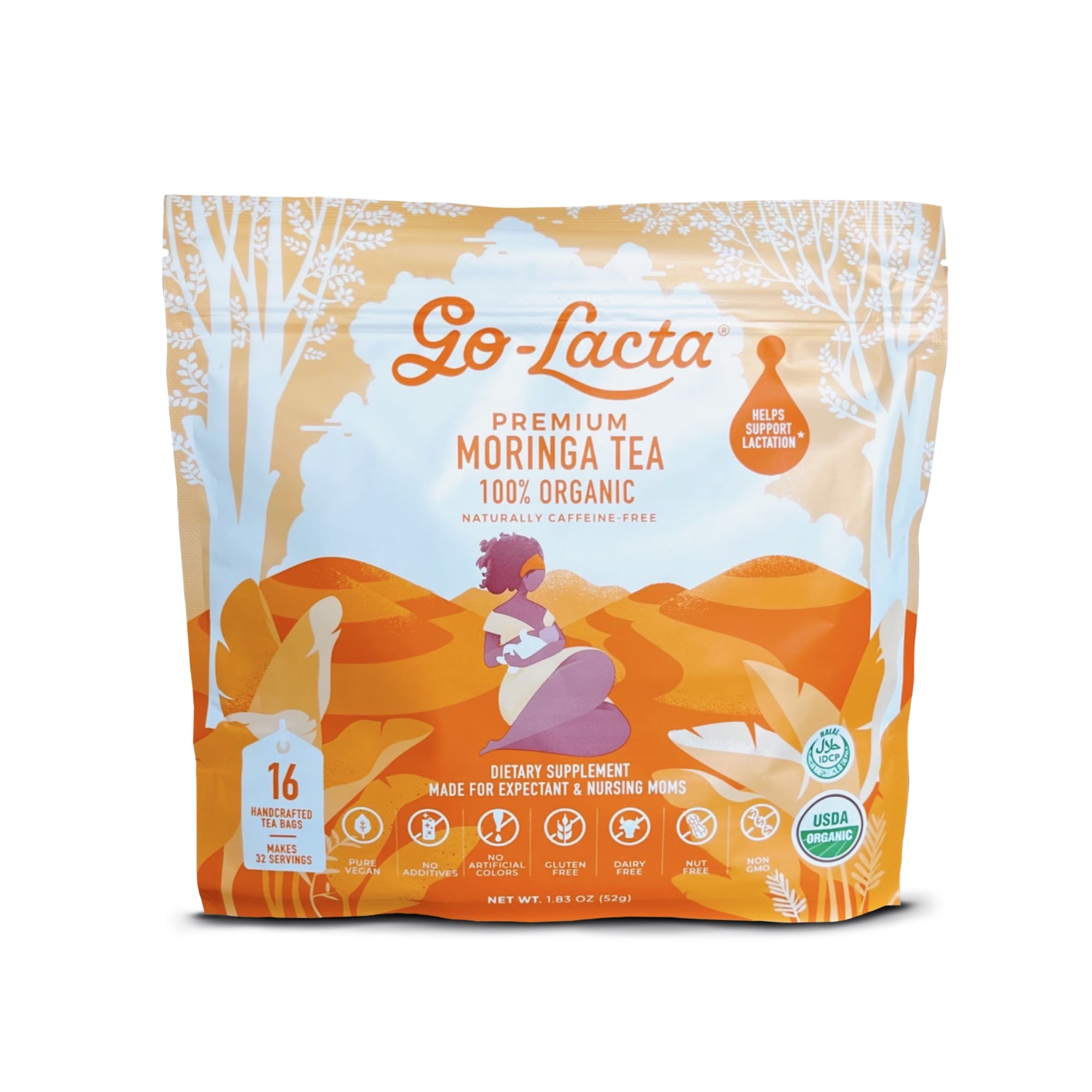
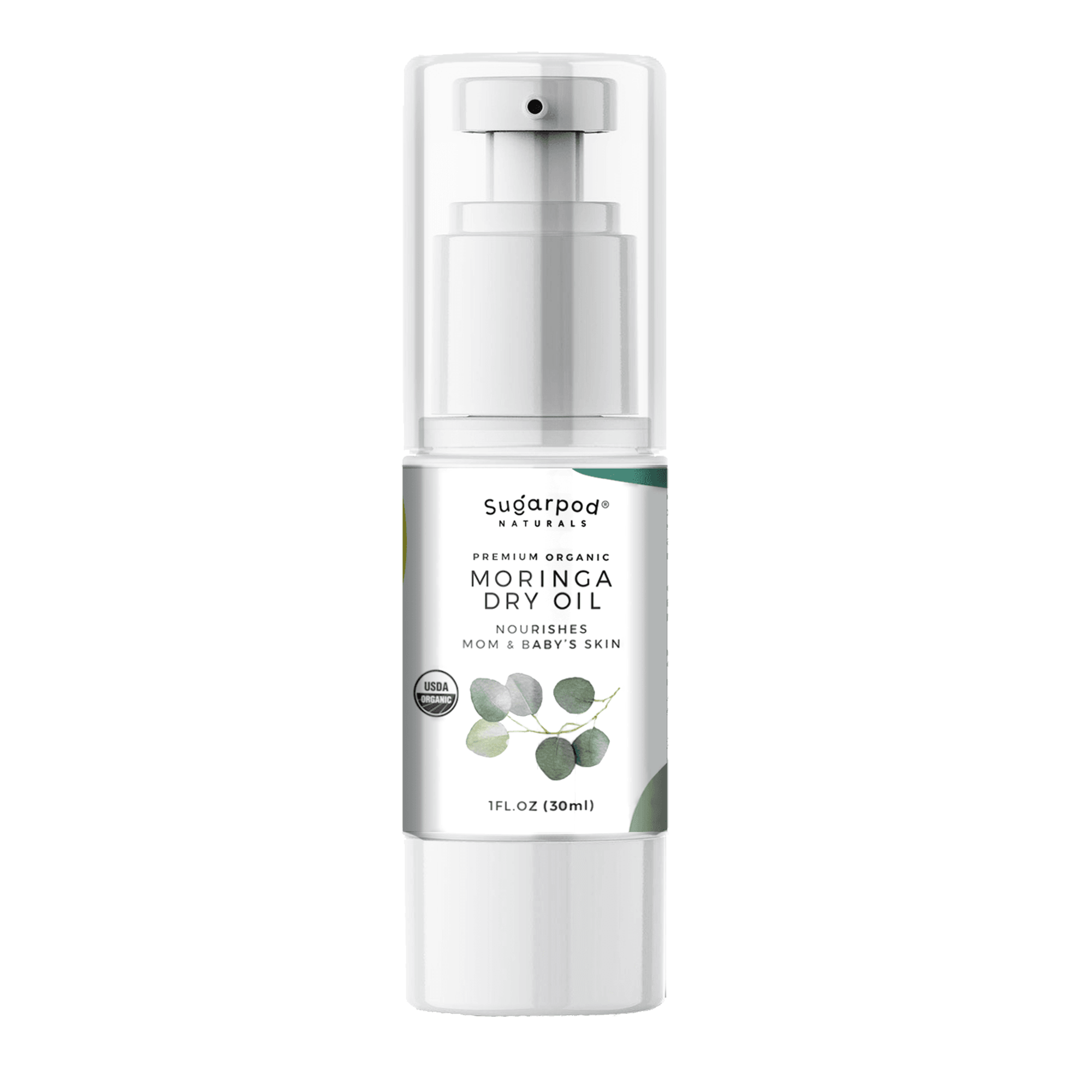

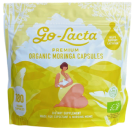





Leave a Comment
Your email address will not be published. Required fields are marked *